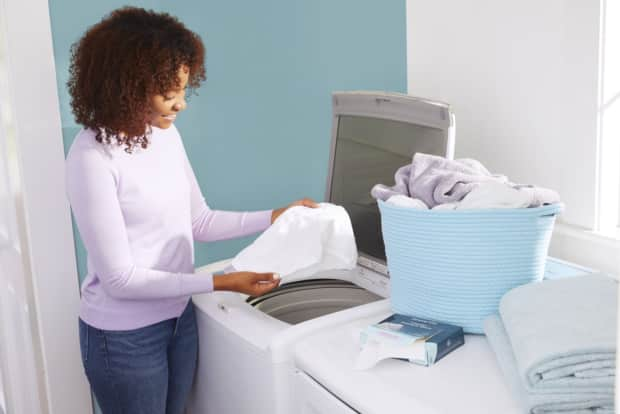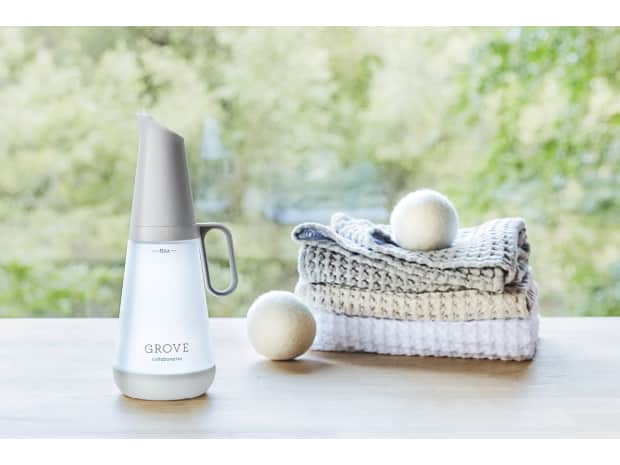Using the wrong washer settings for your sheets can seriously do a number on them. Here’s a quick-and-not-so-dirty run-down of what temperature, cycle, and settings to use for different types of sheets.
Cotton sheets
Cotton sheets are soft and crisp, easy to care for, and keep you cool at night. Wash your cotton sheets in warm water on a normal cycle with natural detergent. Tumble-dry them on low heat to prevent shrinkage.
Silk and satin sheets
Ah, silk, the pinnacle of luxury! Wash your silk and satin sheets (and any silk or satin items, for that matter) in a silk-only load. Use cold water on a delicate cycle with a detergent specially formulated for silks. Air drying out in the open is preferred, but the air-dry setting on your dryer will do just fine. Silk dries quickly, so check your sheets frequently to avoid undue wear.
Linen sheets
Linen is durable, breathable, and gets softer with age. Wash your linens in warm water on a permanent press setting using your usual detergent. Linen may feel rough if it’s dried on high heat, so set your dryer on a medium setting, and remove your sheets while they’re still a little damp to reduce wrinkles.
Bamboo sheets
Bamboo is a sustainable fiber that’s hypo-allergenic, moisture-absorbing, and softer than cotton and linen. Wash these sheets with regular detergent in cool to warm water on a gentle wash cycle. Tumble-dry bamboo sheets on medium heat.





